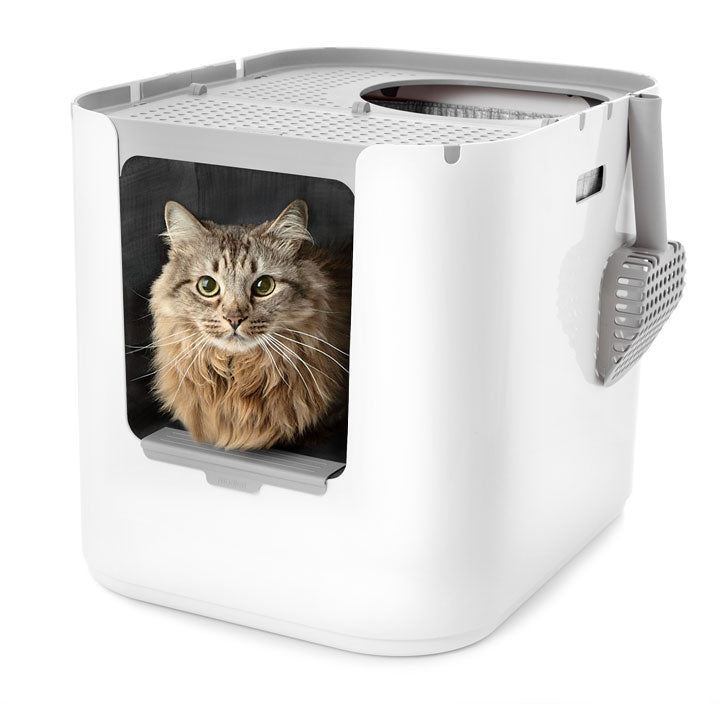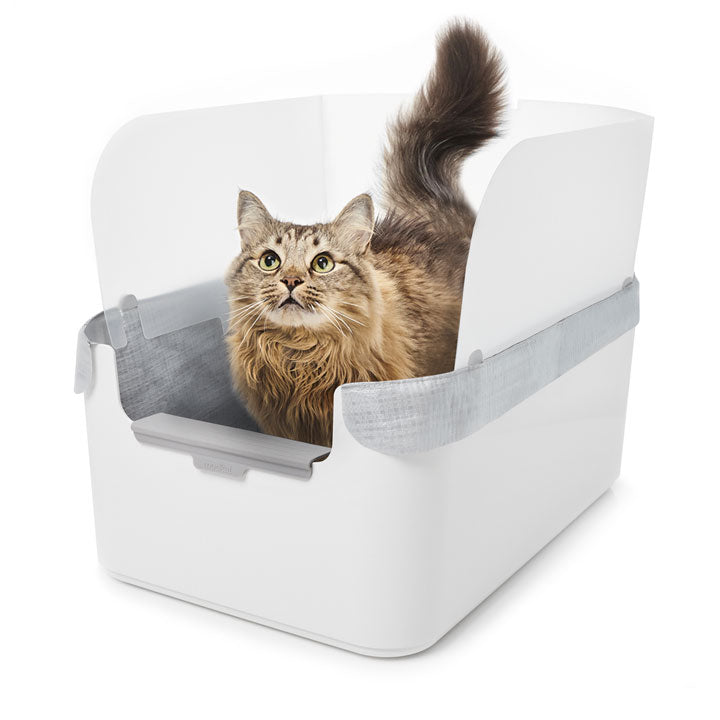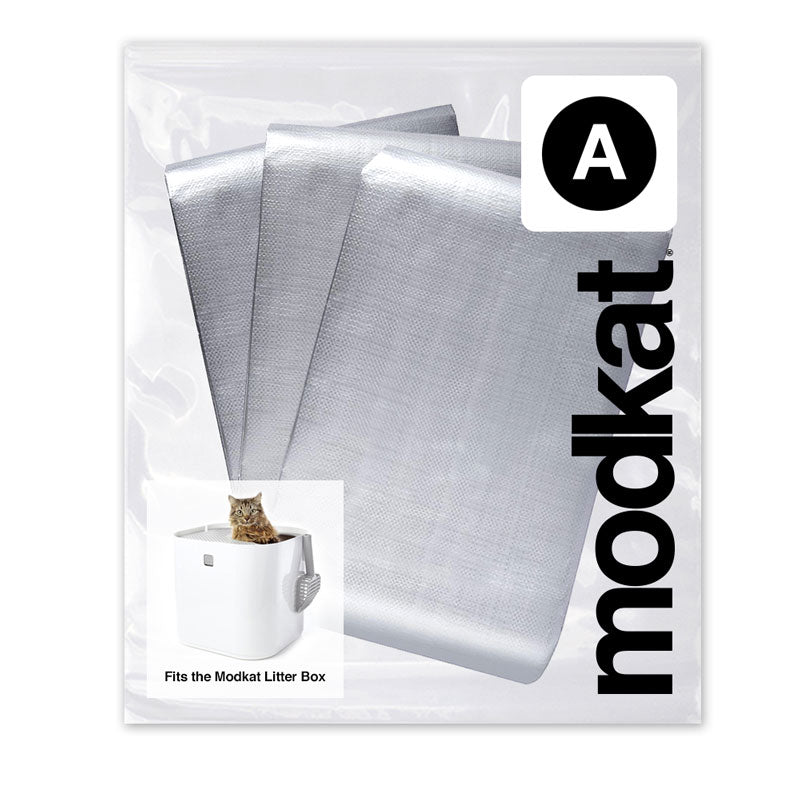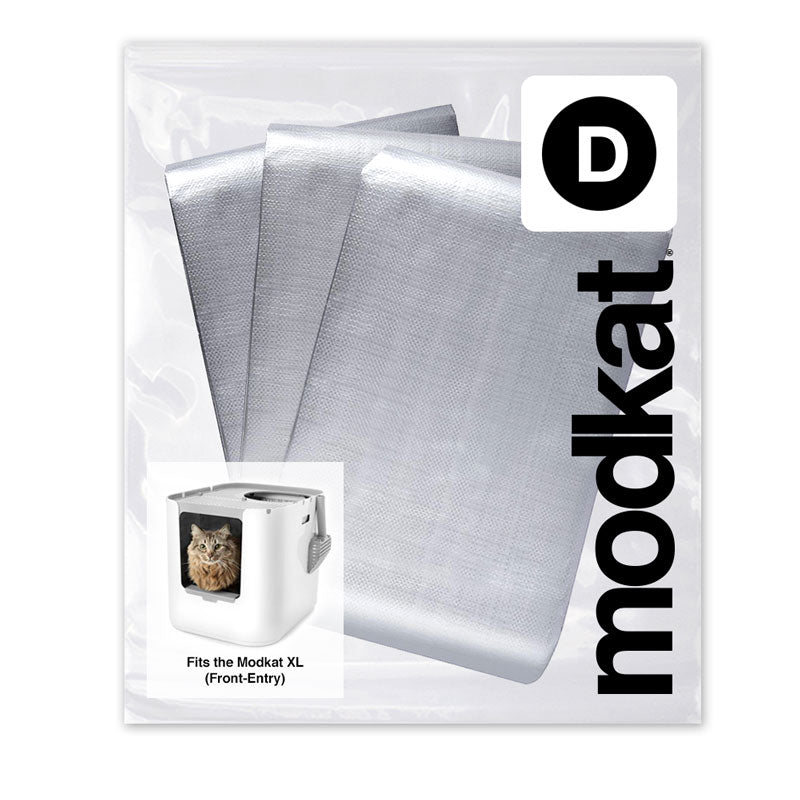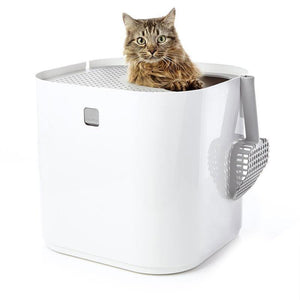Litter Boxes
Accessories
Liners
Do cats cause asthmatic attacks or prevent them?

Is it true that exposing yourself and your family to cats increases the risk of contracting asthma or having an attack? Maybe.
If you have an asthma diagnosis, most doctors will advise you to exercise caution when living with your pets. You don't have to get rid of your favorite cat, of course, but it is smart to take precautions to minimize the chances of an asthma attack when you live in a pet-loving home.
On the other hand, not all exposure to pets is bad for allergies. In fact, some pets can help prevent asthma. Research has shown that children who are exposed to cats in their early stages of development can develop resistance to asthma by the time they are seven years old.
Let's talk about how to live with cats without having an asthma attack.
What is asthma?
Asthma is a chronic ailment affecting the pathways carrying air to your lungs. Patients with asthma often complain of inflammation and swollen bronchial tubes. The disease's main symptoms are coughing and wheezing. If you are asthmatic, exposure to irritants like cold air, strong cleaning chemicals, and dander from your pets can result in excessive swelling of the airways, commonly known as an asthma attack.
If you are asthmatic, doctors will probably advise you to exercise caution about living with your pets.
Tips to reduce your or your child's risk of having an asthmatic attack.
- Vacuum your house frequently. This will help control the pet hair and dander inside your home. Focus on the spots where cat hair collects, and use the attachments to clean deep in the floor's crevices. If possible, get a vacuum cleaner with a high HEPA filter so the dirt and dander won't blow back into the air. Also, add some baking soda to the bag for odor control without a heavy chemical scent.
- Groom your pet regularly. Brushing your cat regularly will help keep your property fur free. Most cats love being brushed or combed, and if that's your cat, then you'll have a chance to spend quality time together. Try a FURminator, a butter brush, or a slicker brush, and stick with whatever your pet seems to like. You may be amazed at how much fur comes off your cat.
- Bathe your cat if the animal will accept it. A cat's tongue is designed to clean its body, and in general, that approach works great - but it does spread allergens. Some cats, though, genuinely love playing in water, and left to themselves will clown around with a drizzling faucet in the sink or tub, helping neutralize dander. That said, many house cats loathe water, so if your kitty is one of those, don't force her to try to bathe since it can be stressful.
- Control your pet's access to your bedroom: If you are asthmatic, the best way to avoid an asthma attack is by limiting the allergens that come your way. By restricting the areas where your pet can roam, you limit your exposure to your fur friend's allergy-causing dander.
- Keep your bedding clean. Make sure the sheets, mattress protector, and comforter all go through the washing machine on laundry day. That way, you won't be sleeping amidst cat dander. To remove extra hair, try running the sheets through the dryer on air dry for 10 minutes before tossing them in the wash. Some of our colleagues at Modkat swear by an air purifier, which can be both affordable and easy to find.

How do cats prevent asthma?
Regarding cats and children, studies have shown that it’s important to expose young children to your pet cat. That's because children can develop antibodies thus preventing them from picking up allergic reactions to cats. These antibodies will work to ensure the child is also asthma resistant by the age of seven years.
Final thoughts.
Cats themselves do not cause asthma. But the allergens in the cat’s saliva can increase the possibility of an asthma attack. If you as a pet parent are able to limit your exposure to these allergens, you are good to go. For mild or moderate asthma, just keep your house extra clean and use air filters.
Exposing your children to cats at an early age is a great idea. It often allows them to develop resistance to the asthma-enhancing allergens in cat dander.
“It looks nicer than any other hooded or open option we considered.”

Purrr News.
Join our email list and get exclusive access to new products, the best cat litter box health articles, and 10% off your first order!
Similar products related to this blog:
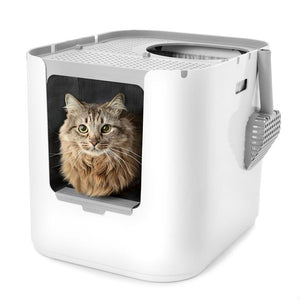
"It looks nicer than any other hooded or open option we considered."

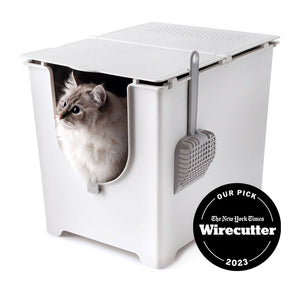
"This litter box keeps everything in, nothing gets out the sides."
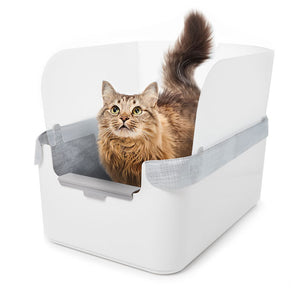
"My beautiful ragdoll cat and I both love the new Modkat Litter tray!"

